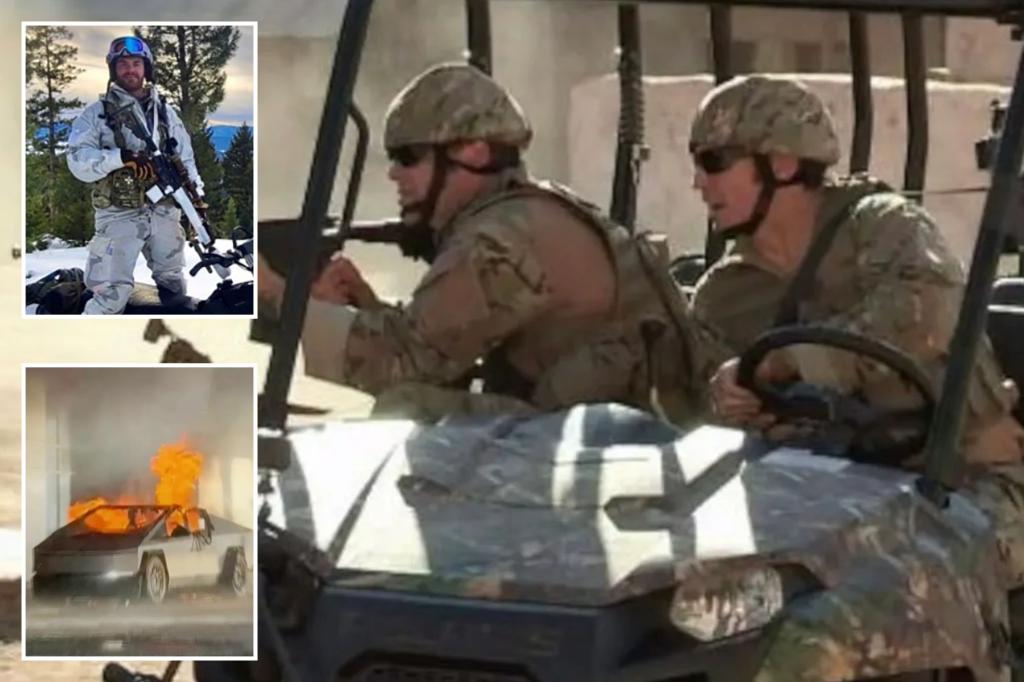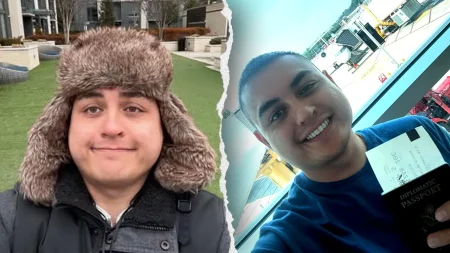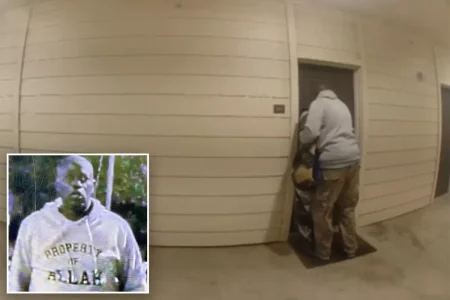Matthew Livelsberger, the individual responsible for the New Year’s Day Tesla Cybertruck bombing outside Trump International Hotel in Las Vegas, possessed a complex and multifaceted background that included a stint on a military reality TV competition. Over a decade before the tragic incident, Livelsberger, known by his nickname “Matt Berg,” appeared on the History Channel’s “Ultimate Soldier Challenge.” In this competition, which aired in March 2013, he partnered with fellow Green Beret and MMA fighter Tim Kennedy to simulate SEAL Team Six’s raid on Osama Bin Laden’s compound. Livelsberger’s participation in this program provided a glimpse into his military skills and mindset years before his self-inflicted death and the subsequent explosion. His appearance on the show contrasted sharply with the later events that unfolded, leaving many who knew him searching for answers.
The “Ultimate Soldier Challenge” episode showcased Livelsberger’s proficiency in various military techniques and his ability to handle different weaponry. He and Kennedy demonstrated remarkable teamwork and skill, winning each challenge and ultimately claiming the title of “Ultimate Soldiers.” Livelsberger’s confidence and expertise were evident throughout the competition. He boasted about his ability to adapt to and master any weapon, reflecting a deep familiarity with firearms and combat tactics. He also emphasized the importance of camaraderie and teamwork, highlighting the principle of “always having each other’s back” as essential for successful missions. This public display of his military prowess stands in stark juxtaposition to the destructive act he later carried out.
The connection between Livelsberger’s past television appearance and the Las Vegas bombing came to light through Tim Kennedy’s social media post. Kennedy, a retired MMA and UFC fighter, expressed shock and disbelief upon learning about Livelsberger’s involvement in the incident. He described his former teammate as sincere, hardworking, and talented, struggling to reconcile the image of the man he knew with the act of violence that had taken place. Kennedy’s public statement added another layer of complexity to the already bewildering situation, highlighting the difficulty in understanding the motivations behind Livelsberger’s actions.
Beyond his television appearance, Livelsberger’s military career spanned nearly two decades. He served in active duty, the National Guard, and the Army Reserve, including deployments to Afghanistan in 2017 and 2018. He was a dedicated soldier with extensive experience in Special Operations. This long history of service makes the events of New Year’s Day even more perplexing. The contrast between his dedication to his military career and his ultimate act of self-destruction paints a picture of a deeply troubled individual.
The bombing itself was preceded by personal turmoil in Livelsberger’s life. He left his home in Colorado Springs after a marital dispute stemming from infidelity. He then rented the Tesla Cybertruck, which he loaded with explosives and fireworks, before driving to Las Vegas. He parked the vehicle in the valet area of Trump International Hotel and took his own life. In suicide notes discovered by investigators, Livelsberger explained his actions not as an act of terrorism but as a desperate attempt to gain attention and express his disillusionment with the country’s leadership. He cited the burden of lives lost during his military service and a desire to cleanse his mind as contributing factors to his actions.
Livelsberger’s suicide notes reveal a troubled mind grappling with past experiences and a perceived decline in American values. He expressed a deep sense of patriotism, referring to the United States as “the best country people to ever exist” while simultaneously lamenting its current state. He criticized what he saw as weak and self-serving leadership and expressed fears about the country’s future. This combination of patriotic sentiment and despair suggests a complex internal struggle leading up to the bombing. The incident underscored the challenges faced by veterans grappling with the psychological and emotional aftermath of their service and the potential for extreme actions when these struggles go unaddressed.











